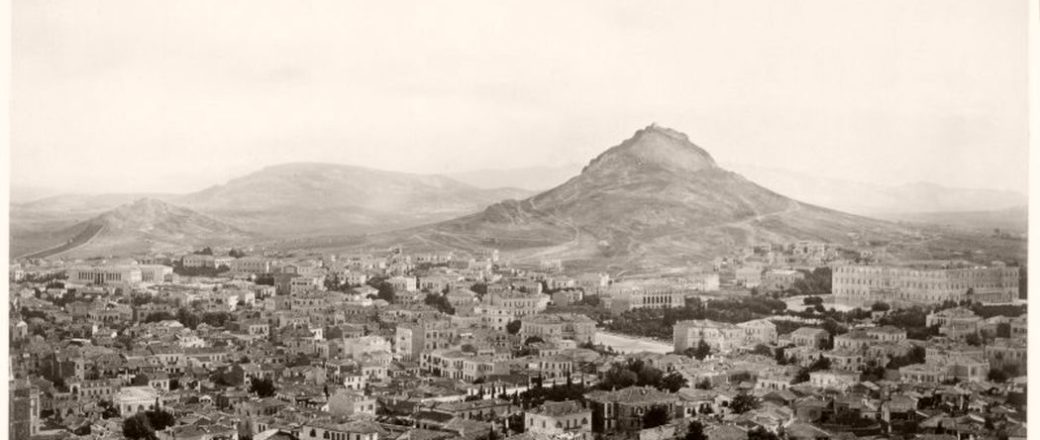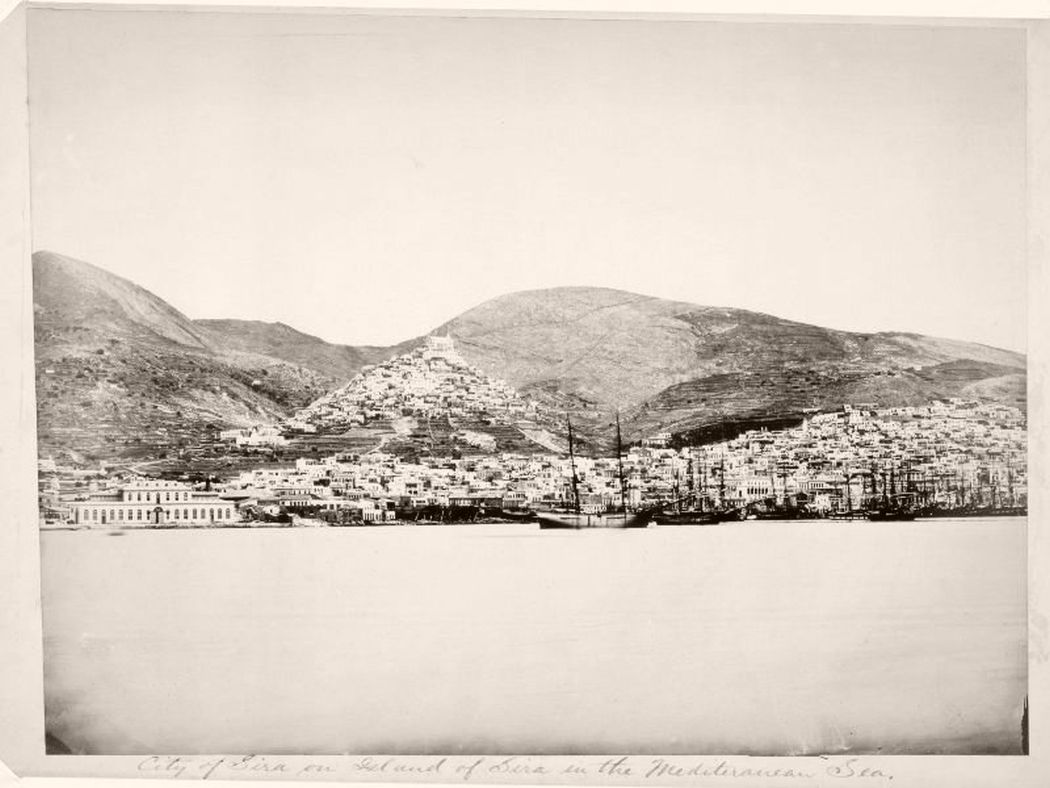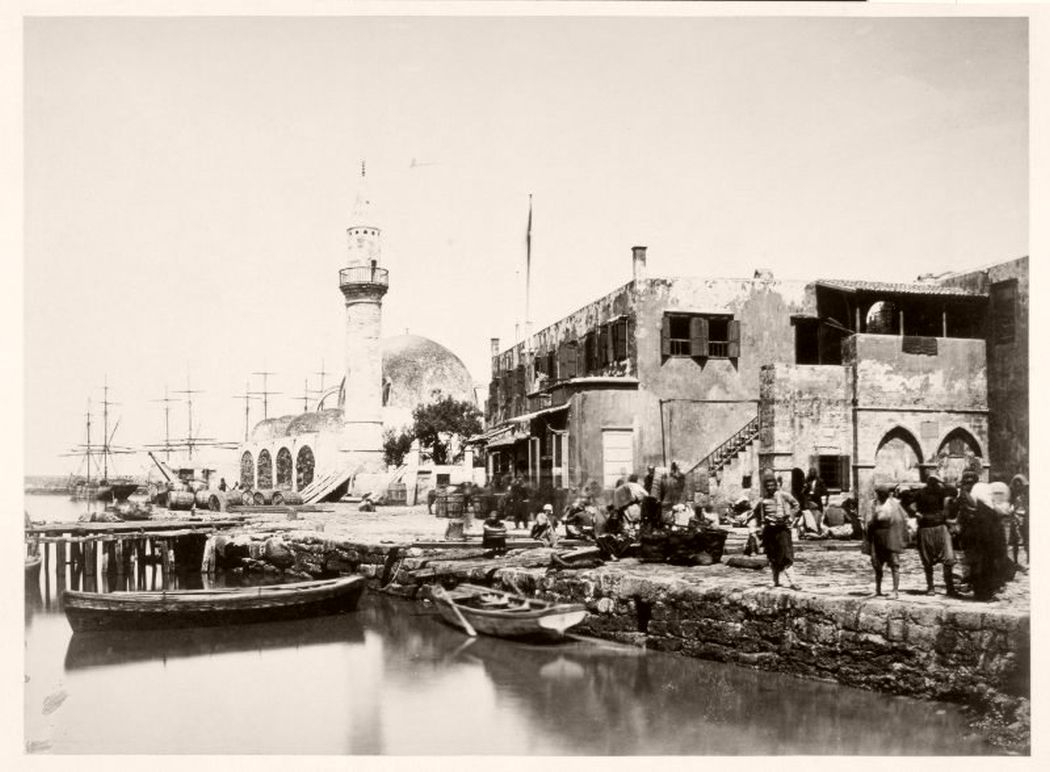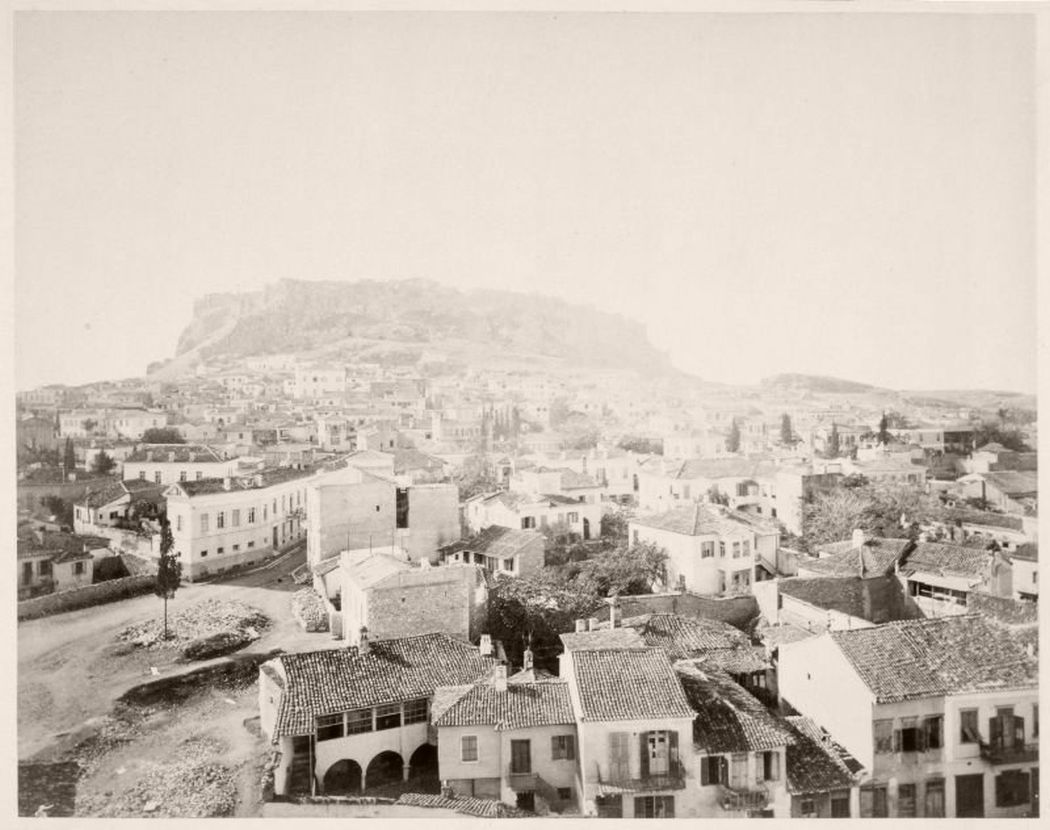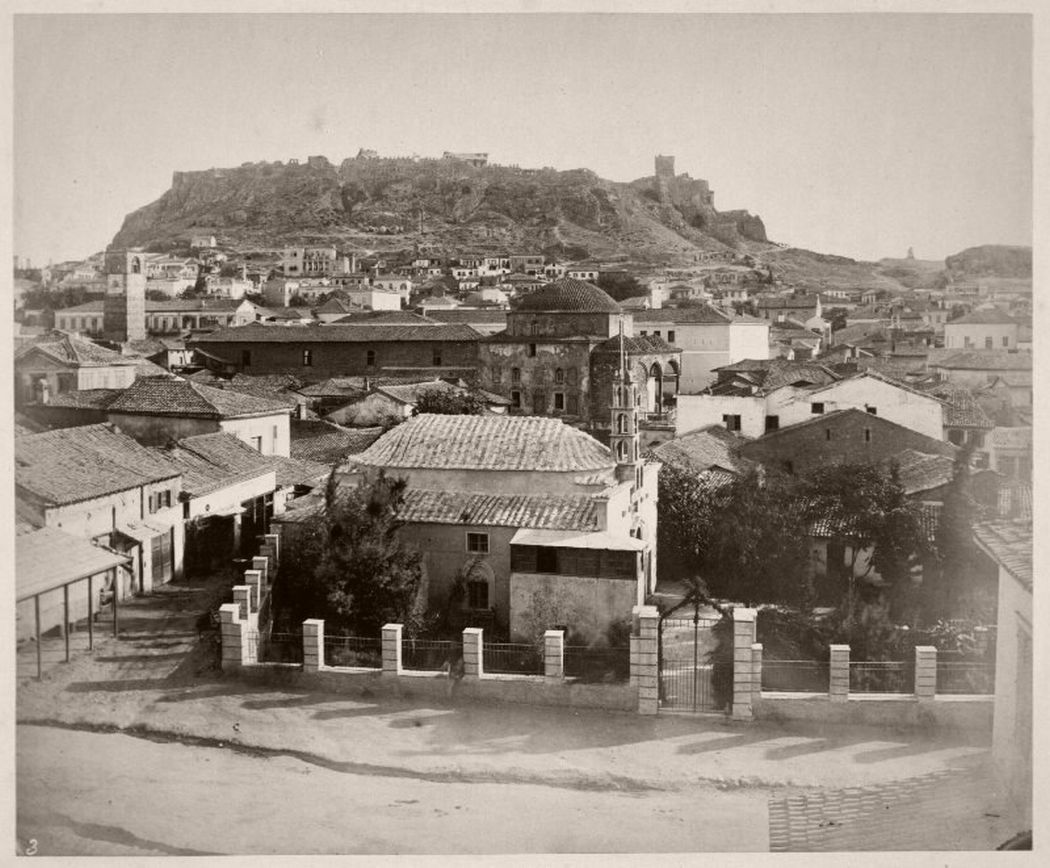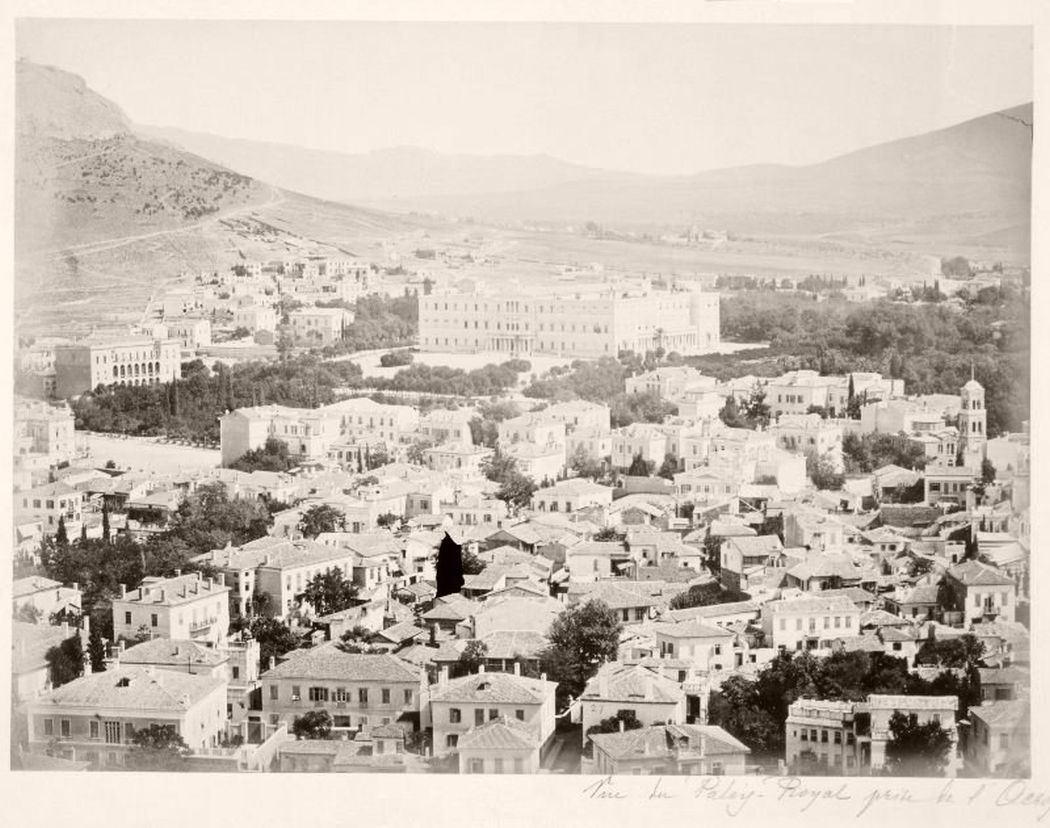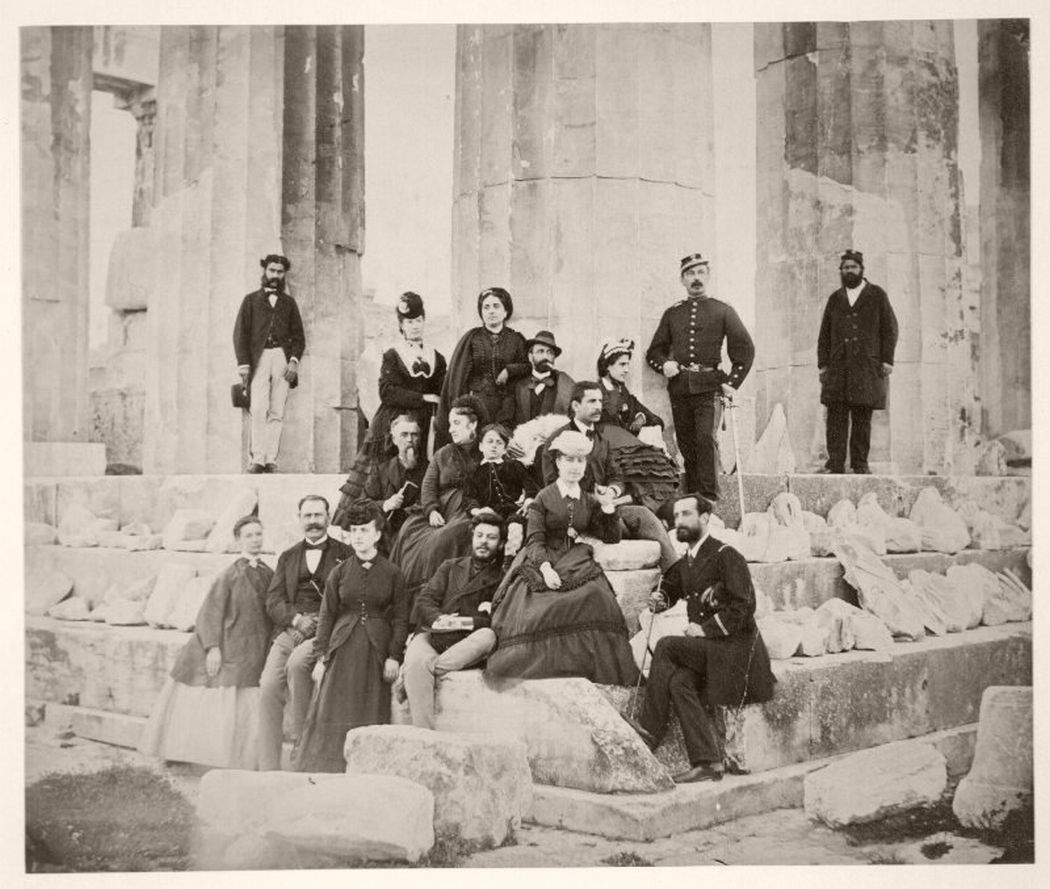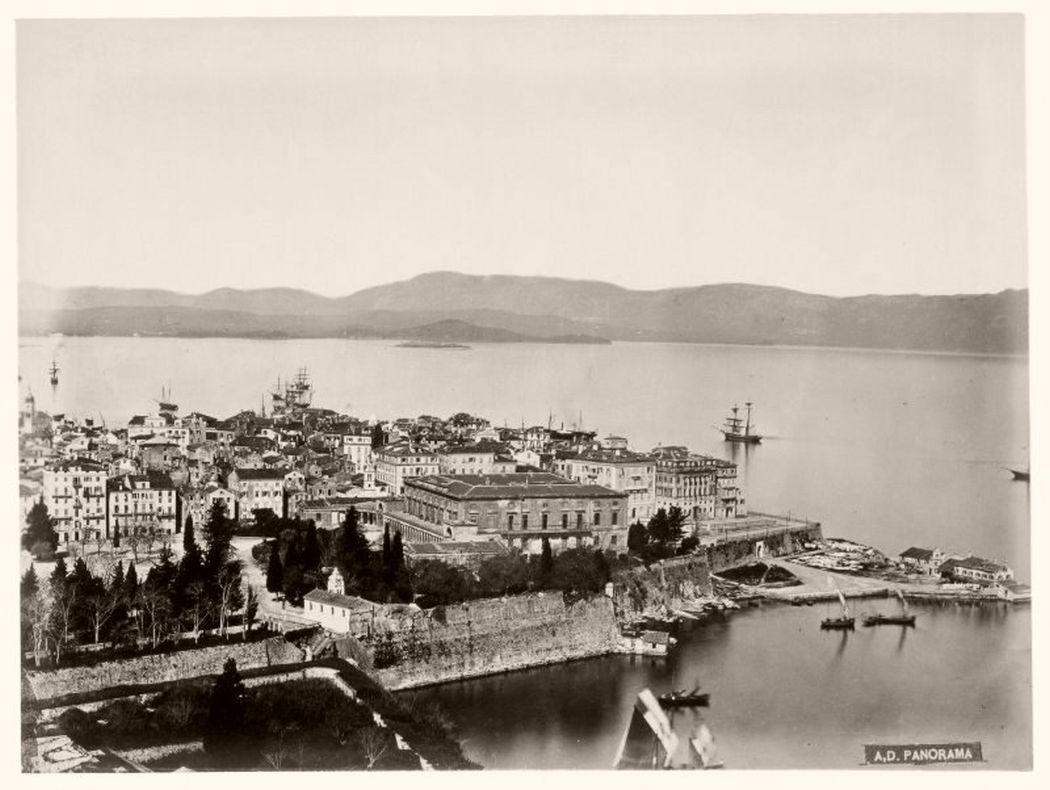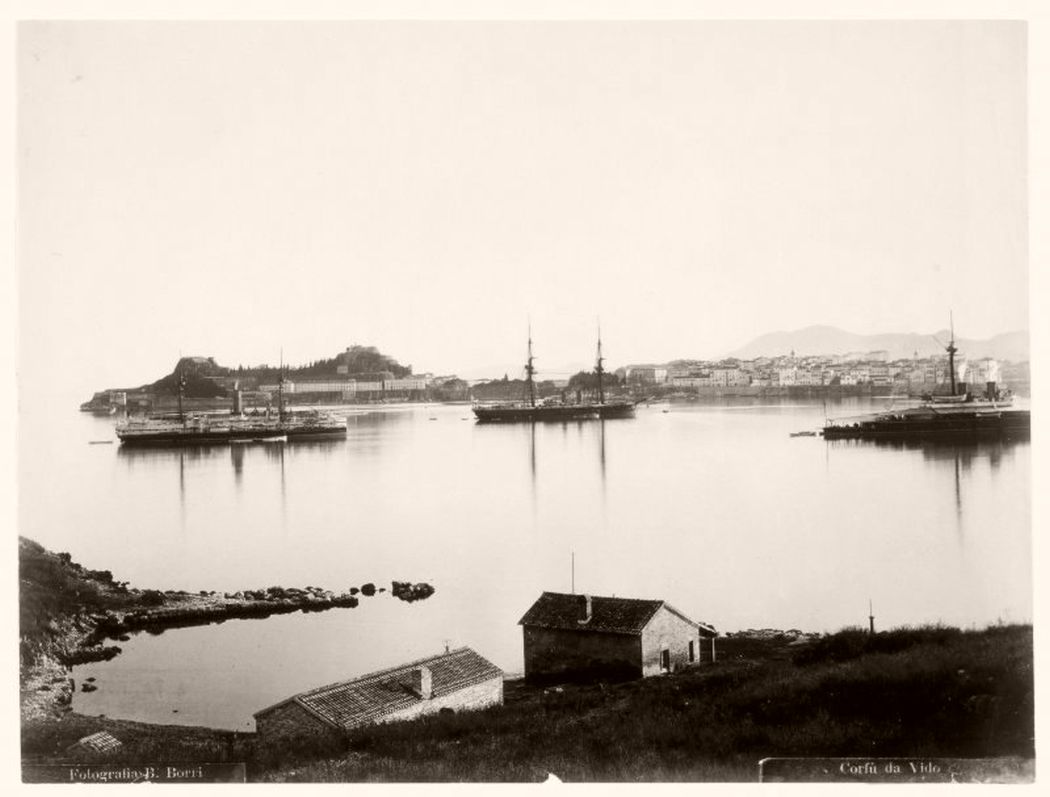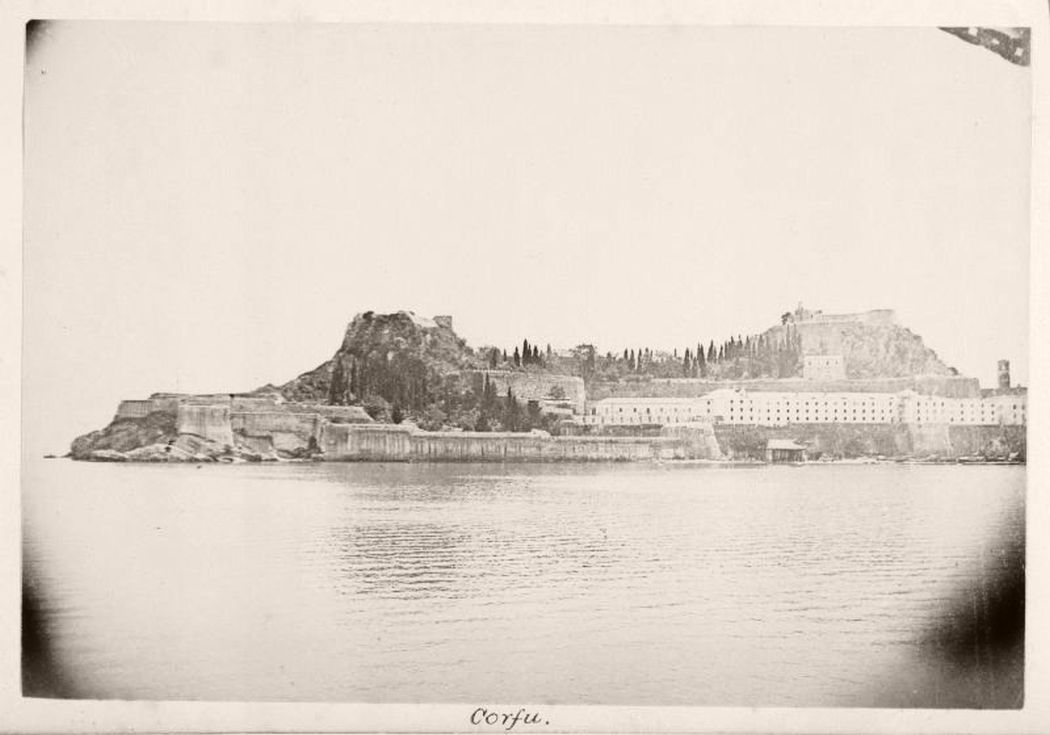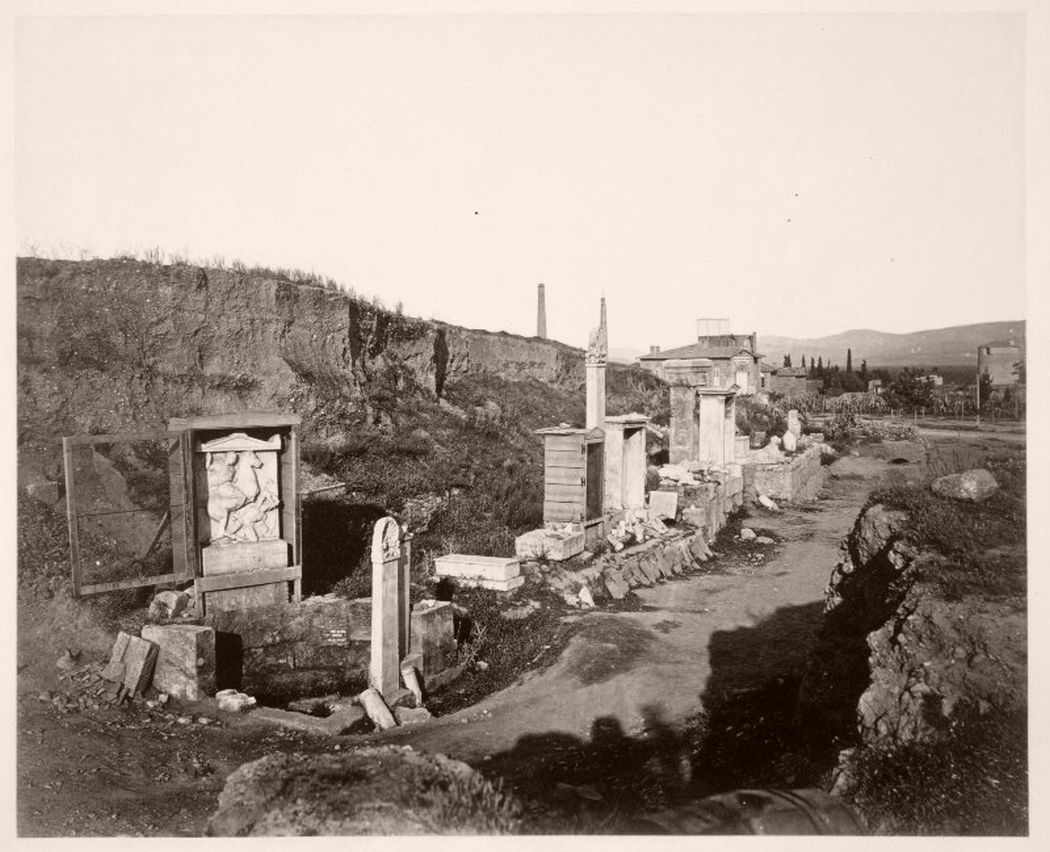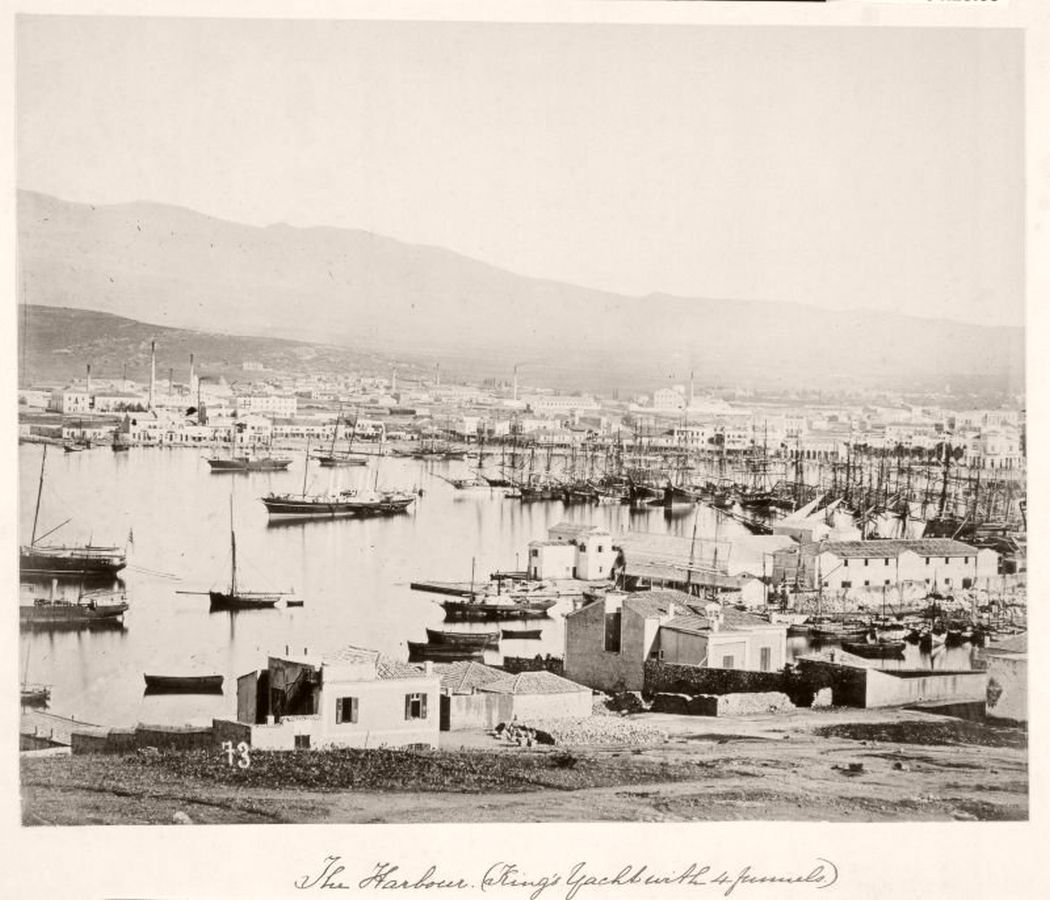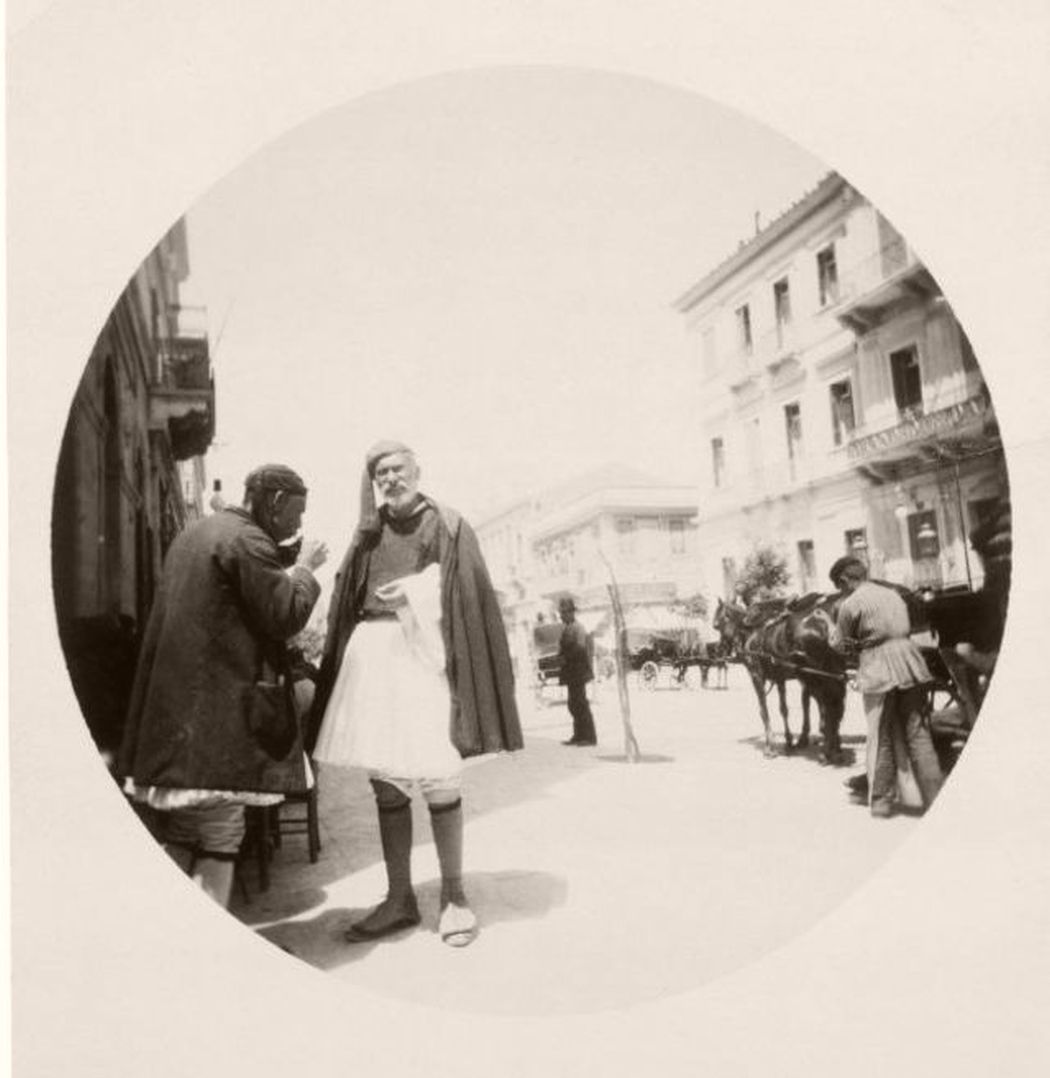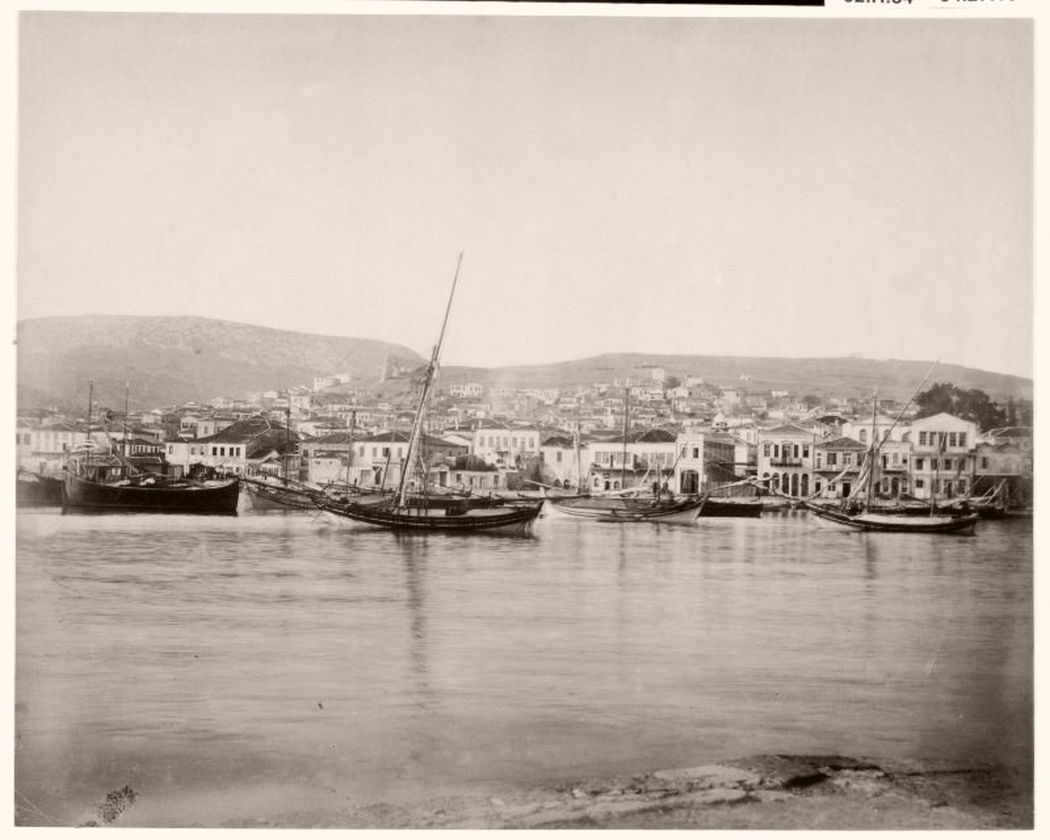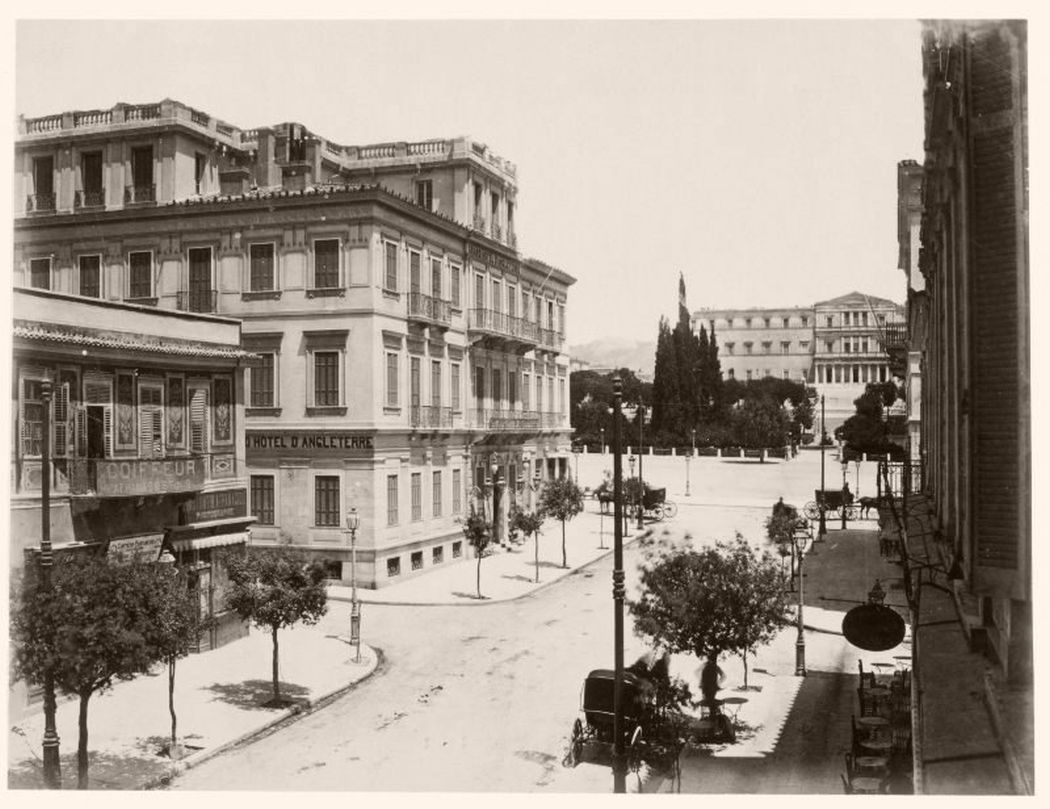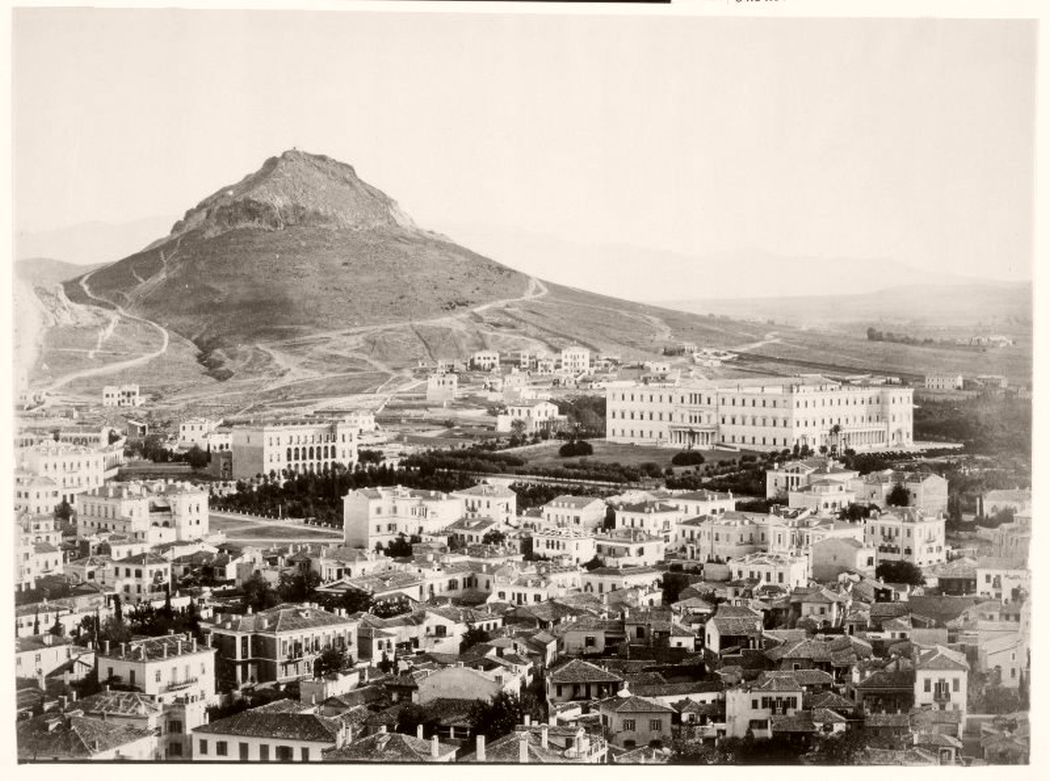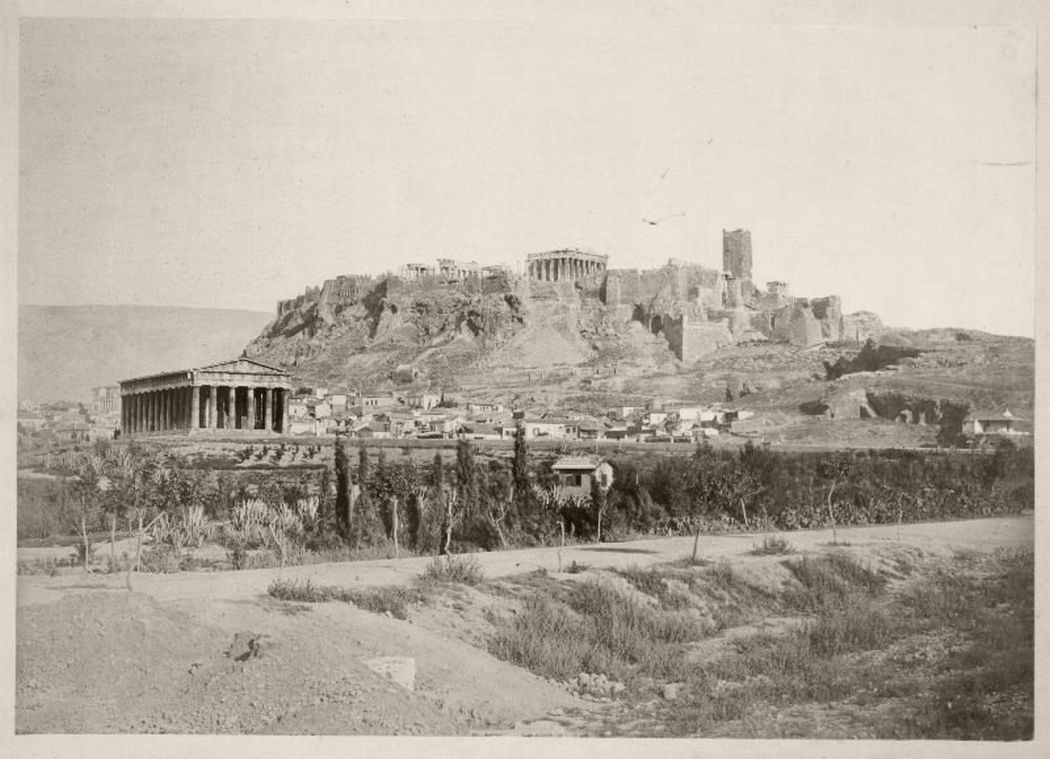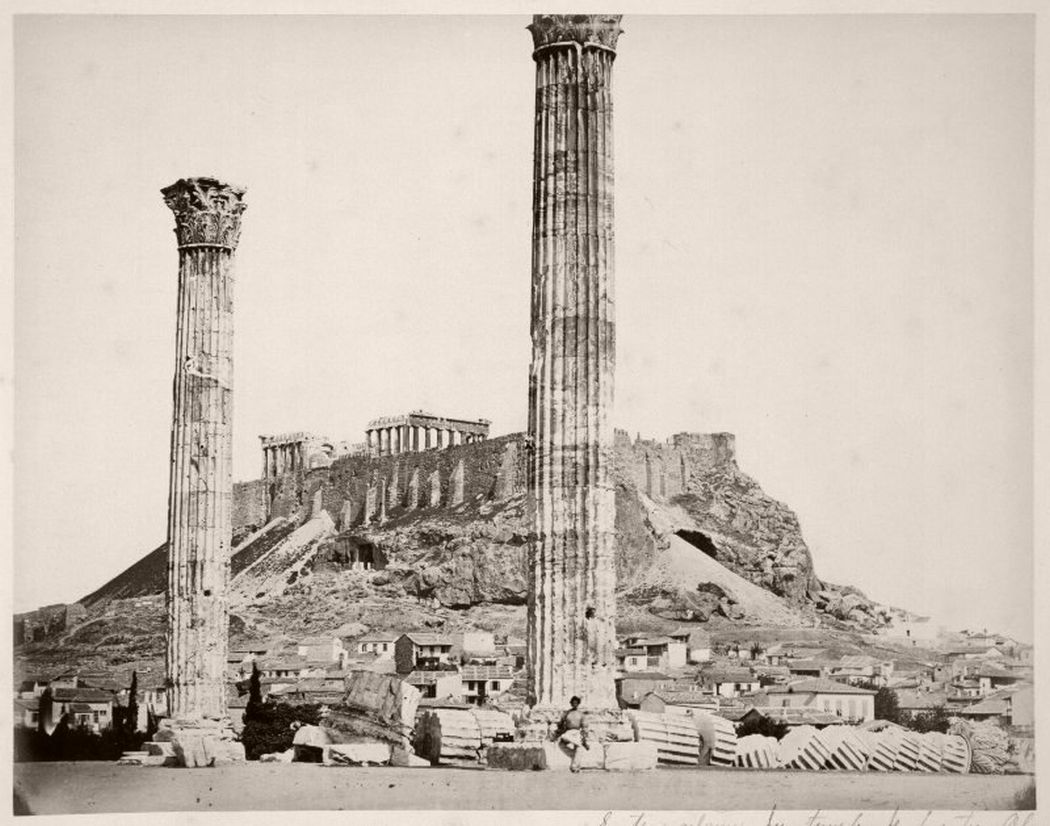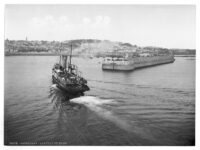Greece remained a very poor country throughout the 19th century. The country lacked raw materials, infrastructure and capital. Agriculture was mostly at the subsistence level, and the only important export commodities were currants, raisins and tobacco. Some Greeks grew rich as merchants and shipowners, and Piraeus became a major port, but little of this wealth found its way to the Greek peasantry. Greece remained hopelessly in debt to London finance houses.
By the 1890s Greece was virtually bankrupt. Poverty was rife in the rural areas and the islands, and was eased only by large-scale emigration to the United States. There was little education in the rural areas. Nevertheless, there was progress in building communications and infrastructure, and fine public buildings were erected in Athens. Despite the bad financial situation, Athens staged the revival of the Olympic Games in 1896, which proved a great success.
The Hellenic Parliament in the 1880s, with PM Charilaos Trikoupis standing at the podium.
The parliamentary process developed greatly in Greece during the reign of George I. Initially, the royal prerogative in choosing his prime minister remained and contributed to governmental instability, until the introduction of the dedilomeni principle of parliamentary confidence in 1875 by the reformist Charilaos Trikoupis. Clientelism and frequent electoral upheavals however remained the norm in Greek politics, and frustrated the country’s development.

